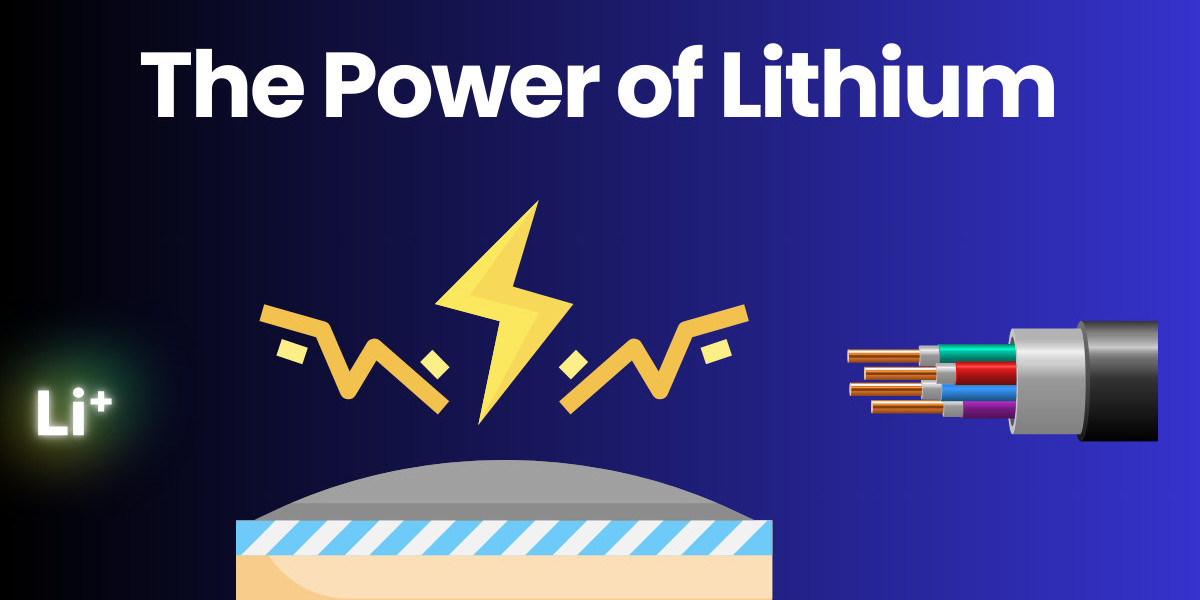In the world of modern technology and energy solutions, Lithium has emerged as a critical element driving innovation and efficiency. From powering our smartphones to enabling electric vehicles and advancing renewable energy, Lithium plays a pivotal role in shaping the future. This article explores the importance of Lithium, its uses, benefits, and the potential it holds for the future.
What is Lithium?
Lithium is a soft, silvery-white metal that belongs to the alkali metal group. It is the lightest metal and has a density about half that of water. It is highly reactive and flammable, requiring special handling and storage. Discovered in 1817 by the Swedish chemist Johan August Arfvedson, Lithium is symbolized by Li on the periodic table and has an atomic number of 3.
The Role of Lithium in Modern Technology
Lithium in Batteries
One of the most significant applications of Lithium is in rechargeable batteries. Lithium-ion batteries, commonly used in smartphones, laptops, and tablets, offer high energy density, low self-discharge, and a long lifespan compared to other battery types. They work by moving Lithium ions between the positive and negative electrodes, creating an electric current that powers electronic devices. The advantages of Lithium-ion batteries include:
- High Energy Density: They can store more energy in a smaller, lighter package, making them ideal for portable electronics.
- Long Lifecycle: They typically last longer than other rechargeable batteries, which reduces waste and the need for frequent replacements.
- Low Self-Discharge Rate: They retain their charge better when not in use, ensuring your devices are ready when you need them.
Lithium in Electric Vehicles
The automotive industry is undergoing a revolution with the shift towards electric vehicles (EVs). At the heart of this transformation is the Lithium-ion battery. These batteries provide the necessary power to propel electric cars, offering several benefits:
- Extended Range: Modern Lithium-ion batteries can power EVs for hundreds of miles on a single charge.
- Rapid Charging: Advances in Lithium-ion technology have led to faster charging times, reducing the time required to recharge an electric vehicle.
- Environmental Benefits: Electric vehicles powered by Lithium-ion batteries produce zero tailpipe emissions, contributing to a reduction in air pollution and greenhouse gases.
Lithium in Renewable Energy Storage
As the world moves towards cleaner energy sources, Lithium-based batteries are crucial for storing renewable energy. Solar and wind power are intermittent by nature, meaning they do not always produce energy when it is needed. Lithium-ion batteries can store excess energy generated during peak production times and release it when production is low. This capability helps to stabilize the grid and ensure a consistent energy supply.
The Benefits of Lithium-Based Technologies
The widespread adoption of Lithium-based technologies brings several benefits:
Efficiency: Lithium-ion batteries offer high efficiency in terms of energy storage and discharge. This efficiency translates to longer-lasting power for devices and vehicles.
Portability: Due to their lightweight and compact nature, Lithium-ion batteries are ideal for portable electronics and applications where space is limited.
Sustainability: While the extraction and processing of Lithium have environmental impacts, the overall sustainability of Lithium-based technologies is positive compared to fossil fuels. EVs and renewable energy systems reduce reliance on non-renewable energy sources and lower emissions.
The Challenges of Lithium
Despite its advantages, Lithium presents certain challenges:
Resource Scarcity
Lithium is relatively abundant in the Earth's crust, but economically viable sources are limited. Major reserves are found in countries like Australia, Chile, and Argentina. The concentration of Lithium resources in a few regions can lead to supply chain vulnerabilities and geopolitical issues.
Environmental Impact
The extraction and processing of Lithium can have environmental impacts. The process of mining Lithium often involves significant water usage, which can affect local ecosystems and communities. Additionally, the production of Lithium-ion batteries involves hazardous chemicals and requires careful management to minimize environmental harm.
Recycling and Disposal
The recycling of Lithium-ion batteries is an area of ongoing research and development. While efforts are being made to improve recycling processes and reduce waste, many batteries still end up in landfills. Proper disposal and recycling are essential to reduce the environmental footprint of Lithium-based technologies.
The Future of Lithium
As technology advances, the role of Lithium is expected to expand. Researchers are exploring new applications and improvements in Lithium-based technologies:
Advanced Battery Technologies
Researchers are developing new types of Lithium-based batteries, such as Lithium-sulfur and Lithium-air batteries. These technologies promise higher energy densities and longer lifespans, potentially transforming the energy storage landscape.
Sustainable Extraction Methods
Efforts are underway to develop more sustainable methods for extracting and processing Lithium. This includes innovations in mining techniques, the use of alternative sources such as geothermal brine, and improved recycling technologies.
Integration with Smart Technologies
Lithium-based batteries are being integrated into smart technologies and the Internet of Things (IoT). This integration enables more efficient energy management and supports the development of smart grids and connected devices.
Conclusion
Lithium is a remarkable element that powers much of the modern world. Its role in batteries, electric vehicles, and renewable energy storage is crucial for technological advancement and environmental sustainability. While there are challenges associated with Lithium, ongoing research and development are addressing these issues and paving the way for a brighter future. As we continue to innovate and find new applications for Lithium, its significance in shaping our technological landscape will only grow.



